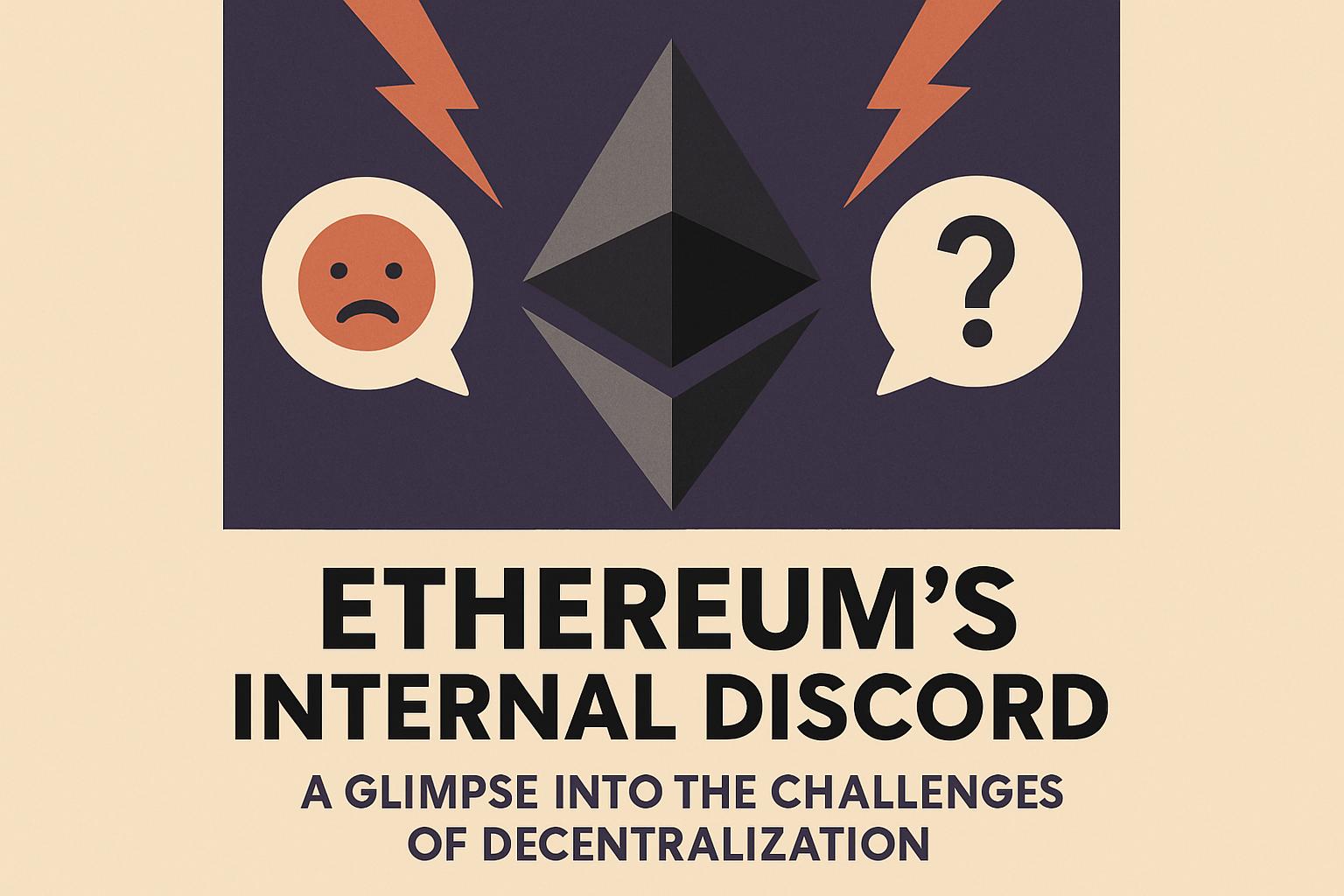Ethereum, the pioneer of decentralized finance and smart contracts, is no stranger to challenges. As the network grows, the voices of its contributors reveal a tapestry of discord and debate over its governance and future. Recently, an internal letter from Ethereum’s core developer Peter Szilágyi has unearthed tensions within the Ethereum Foundation, sparking discussions across the broader blockchain community.
Unseen Disparities Within the Foundation
Peter Szilágyi’s revelations highlight a profound dissonance between perceived roles and actual influence within the Ethereum Foundation. While often cast as a leader, Szilágyi expressed feeling powerless in key decision-making processes. This public image versus internal reality exposes a systemic issue of role misalignment, suggesting that publicly lauded actors may have little sway in private dealings.
The challenges don’t end there. Szilágyi unveiled financial discontent, citing inadequate compensation relative to the staggering growth of Ethereum’s market cap. Such economic imbalances could drive talent away and precipitate conflicts, threatening the foundation’s ethos of open contribution.
As he criticized the concentration of power within the ecosystem, Szilágyi painted a picture of an industry ruled by a select few venture capitalists. This divergence from Ethereum’s founding principles of decentralization and equal opportunity poses a philosophical quandary for contributors who once believed in a more democratic digital landscape.
The Loyalty Dilemma for Crypto Innovators
Polygon’s co-founder, Sandeep Nailwal, echoed these concerns, questioning his allegiance to Ethereum despite its foundational role in his crypto journey. His reflections reveal an underlying frustration with a community that he perceives as critical and unwelcoming to significant contributions. This sentiment underscores a critical discourse: are blockchain communities inadvertently stifling innovation through insular attitudes?
Vitalik Buterin, Ethereum’s co-founder, intervened in this discussion, acknowledging Polygon’s contributions in the realms of Layer 2 solutions and Zero-Knowledge technologies. His remarks aimed to mend bridges and highlight the positive impact arising from collaboration.
An Ongoing Debate on Fairness and Support
Veteran DeFi developer Andre Cronje offered a parallel narrative, questioning the allocation of Ethereum Foundation grants. His persistent exclusion from support mechanisms mirrors a broader critique of favoritism in the development ecosystem. Cronje’s experience points to a potential misalignment in resource distribution, challenging Ethereum’s stance as an inclusive and supportive network.
In this ongoing dialogue, the crypto community faces fundamental questions: How can decentralized systems ensure fair participation without falling into centralized pitfalls? What steps must be taken to cultivate environments where diverse projects receive equal encouragement?
As Ethereum navigates these growing pains, its resolution could serve as a blueprint for other blockchain projects facing similar challenges. Striking the delicate balance between empowerment and equality remains vital for fostering a resilient, innovative future in the crypto realm.

![[News] Bitcoin at a Turning Point? 10x Research Signals a Bullish Macro Shift Ahead](https://cryptoexplores.com/wp-content/uploads/2025/06/new20250616.jpg)
![[News] Binance Lists $HOME, the Gas-Free, Bridge-Free All-in-One DeFi App](https://cryptoexplores.com/wp-content/uploads/2025/06/news20250617.jpg)